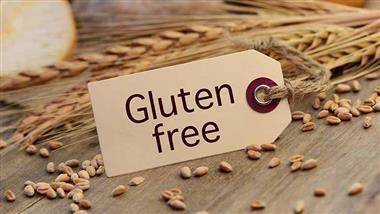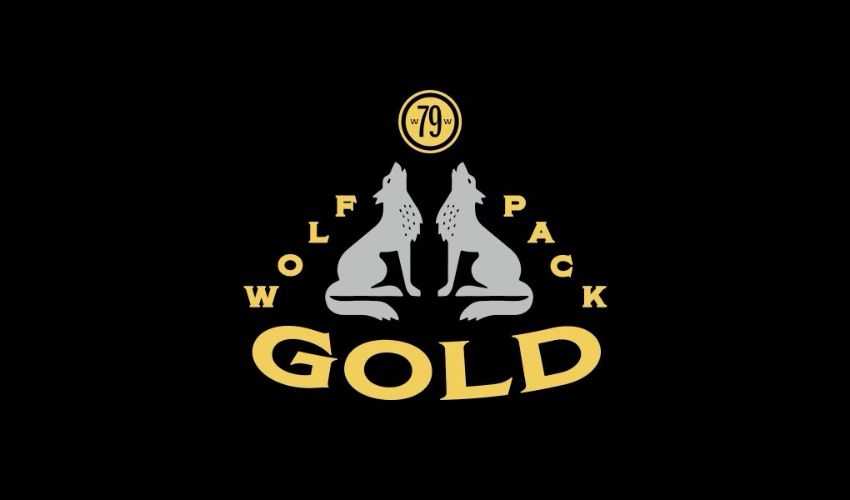Story at-a-glance
- Up to 15% of adults in the U.S. don’t get enough zinc from their diet, putting them at risk for immune problems, hormone imbalance, and poor wound healing
- Phytates in grains and legumes block zinc absorption, making plant-based diets a hidden cause of deficiency even when zinc intake looks adequate
- Symptoms of low zinc, like frequent colds, hair loss, or loss of taste and smell, are often misdiagnosed or overlooked because they resemble other conditions
- Zinc supplements are useful if you’re recovering from illness, but high doses — over 40 mg daily — cause side effects, including copper deficiency and nerve damage
- The most effective way to meet your zinc needs is through food, especially oysters, grass fed beef, crab and dairy, which are more absorbable than plant-based or fortified sources
Your body doesn’t need large amounts of zinc, but without a steady daily supply, your health quietly begins to unravel. This trace mineral is involved in immune protection, tissue repair, hormone balance, and cellular growth — yet your body has no way to store it long-term. That means you need to get it through your food every day or risk falling short without even knowing it.
The problem is, most people don’t realize how easy it is to miss the mark. Zinc absorption depends not just on what you eat, but on what your body absorbs — and common factors like plant-based diets, digestive issues, or chronic stress interfere with that process. Even a diet that looks good on paper often doesn’t deliver enough usable zinc to support basic functions like healing wounds, making testosterone, or mounting an immune defense.
Symptoms of low zinc often show up in disguise. Fatigue, frequent colds, thinning hair, poor appetite, or slow recovery from illness seem unrelated, but all point to a deeper imbalance in how your body is functioning at the cellular level.
To see how this plays out in the real world, and why so many people are unknowingly affected, let’s look at what Harvard Health Publishing had to say about zinc, where to find it, and why it matters more than you think.
Zinc Deficiency Often Goes Undetected Until It’s Already Doing Damage
An article published by Harvard Health Publishing highlights zinc’s role in several foundational processes inside your body, from how fast a wound heals to how well you smell and taste food.1 It’s not just a cold remedy. Zinc is a biological multitasker required for bone formation, hormone production, reproduction, and even fetal development.
•Zinc deficiency is more common than it seems, especially in people with gut issues or restrictive diets — According to Teresa Fung, a registered dietitian and adjunct professor at the Harvard T.H. Chan School of Public Health, your body can’t make zinc on its own, so it has to come from food. While outright zinc deficiency is rare in the U.S., borderline insufficiency is far more widespread and often goes unnoticed until symptoms start stacking up.
•Symptoms of low zinc levels often look like something else, making it hard to catch early — Some people notice slower wound healing, repeated infections, skin rashes, or thinning hair. But these warning signs are vague and easy to blame on other problems. Loss of taste and smell — especially noticeable after illness — is also linked to insufficient zinc intake, not just viruses or aging.
•Even mild deficiency affects hormone levels and reproductive health — Zinc plays a role in making both insulin and testosterone. That means men with suboptimal levels often experience reduced fertility or low libido, while anyone with blood sugar regulation issues will find themselves more insulin resistant over time.
•Children and teens with too little zinc face unique risks — Growth delays, frequent infections, and digestive issues like diarrhea are more likely when zinc is low. Harvard points out that these effects aren’t always recognized as a mineral imbalance, but addressing the root cause — low zinc — makes a meaningful difference.
•Pregnancy increases the demand for zinc, and not getting enough affects the baby — Fetal development relies on zinc for DNA replication, cell growth, and immune function. That’s why the Recommended Dietary Allowance (RDA) for zinc increases to 11 milligrams (mg) per day for pregnant women and 12 mg for those who are breastfeeding.
Zinc Deficiency Is Hidden in Plain Sight in Over 15% of Adults
The National Institutes of Health (NIH) Office of Dietary Supplements highlights a silent nutrient gap in the U.S. population.2 According to their comprehensive fact sheet on zinc, roughly 15% of American adults fail to meet the Estimated Average Requirement for zinc, despite access to fortified foods and supplements. This isn’t limited to those with obvious health issues. Even well-nourished individuals unknowingly fall short, especially older adults, teens, pregnant women, and anyone relying heavily on plant-based diets.
•Not all zinc in food is absorbed the same way — and that changes everything — NIH notes that your body’s ability to absorb zinc depends heavily on what else you’re eating. Phytates — naturally occurring compounds found in grains, beans, seeds, and nuts — bind to zinc in your digestive tract and block its absorption. This means a vegetarian or vegan meal with high “zinc content” on paper offers little usable zinc to your body.
•Zinc levels fluctuate based on stress, inflammation, and even the time of day — Blood tests used to diagnose deficiency aren’t always reliable. Levels shift depending on hormone cycles, recent food intake, and whether you’re dealing with illness or weight loss. That makes it easy to miss a true insufficiency unless clinicians also assess symptoms and risk factors like poor gut absorption, alcohol use, or chronic inflammation.
•Zinc has measurable effects on everything from vision to blood sugar — In people with Type 2 diabetes, low zinc levels are linked to worse insulin function and inflammation.3 Those with age-related macular degeneration also benefit from zinc supplementation, which slows disease progression.4 In children in low-income countries, zinc supplementation cuts the duration of diarrhea by over a day.5
Biologically, zinc controls hundreds of enzymes that run your cellular machinery. These enzymes help your body make new cells, repair damaged ones, and support immune function. Without enough zinc, DNA replication, wound healing, and immune signaling all begin to break down, leading to a wide range of seemingly unrelated symptoms.
•Zinc is stored mostly in muscle and bone, and it cycles through your gut daily — Zinc is constantly recycled through your digestive system, but loss through sweat, urine, and skin turnover means you need a steady daily supply. That supply has to come from food or supplementation if dietary quality is poor or absorption is impaired.
•Too much zinc interferes with copper and magnesium, creating new problems — High supplemental doses (above 40 mg daily) are linked to nausea, immune suppression, and copper deficiency. Long-term overuse has even been tied to neurological symptoms and anemia, especially in people using zinc-containing denture creams.
Zinc Lozenges Help Shorten Your Cold
The Mayo Clinic reported on zinc’s effectiveness for reducing cold duration, supporting wound healing, and improving immune health.7 Zinc consumption reduces the duration of colds by 33% and lessens their severity.6
•Timing matters when it comes to colds — zinc works best if you act fast — Zinc lozenges or syrup only shorten the length of a cold if you take them within the first 24 hours of symptom onset.8 This is because the mineral interacts directly with viruses in your throat and nasal passages. Once the infection spreads deeper into the body, it’s too late for zinc lozenges to make a real difference.
•Not all zinc products are safe — One form in particular — intranasal zinc sprays — has been linked to permanent loss of smell. Mayo Clinic emphasizes avoiding any zinc product that’s applied inside your nose, noting that “the sense of smell may not come back at all” in some users.
•Wound healing improves when zinc deficiency is corrected — Zinc is involved in tissue regeneration, so people with skin ulcers or slow-healing wounds often benefit from supplementation, especially if their blood levels are low. That’s particularly true in older adults and individuals with poor nutrient absorption. People with zinc insufficiency often experience noticeable improvement.
•Side effects from supplements are more common than people realize — Taking zinc by mouth sometimes causes nausea, headaches, and stomach discomfort. Long-term use at high doses increases the risk of copper deficiency and neurological problems like numbness or tingling. The Mayo Clinic cautions against exceeding 40 mg daily unless you’re under medical supervision.
•Drug interactions could cancel out your antibiotics or arthritis meds — Zinc interferes with how your body absorbs certain medications, especially antibiotics like tetracycline or rheumatoid arthritis drugs like penicillamine. The Mayo Clinic recommends taking these medications at least two hours before or four to six hours after zinc to prevent interaction.
How to Make Sure You’re Getting the Right Amount of Zinc
If you’re dealing with frequent colds, slow-healing wounds, or unexplained fatigue, low zinc could be the reason. But fixing the problem isn’t just about taking a pill, especially if your diet or digestion is getting in the way. The real solution is to restore balance by addressing the root cause of zinc loss or poor absorption. That means eating smarter, knowing when supplements are useful, and avoiding the common traps that block zinc from doing its job. Here’s how to make sure your body gets what it needs:
1.Eat real food sources that deliver zinc in a form your body can use — Your best bet is to focus on animal-based foods, which provide highly absorbable zinc. Oysters are the most zinc-rich food on the planet, followed by grass fed beef, crab, and dairy like cheddar cheese. These sources beat plant-based ones hands-down because they don’t contain phytates, which block zinc absorption.
2.Cut back on foods that steal zinc from your system — If your diet is heavy in whole grains or legumes, be aware that phytates in those foods bind to zinc in your gut. Soaking, fermenting, or sprouting those foods reduces this effect, but they’re still less bioavailable than meat. If you’re vegetarian or vegan, you’ll likely need more zinc daily just to get the same benefit.
3.Prioritize zinc from food over supplements — If you’re following a vegetarian or vegan diet, pregnant, recovering from surgery or illness, managing diabetes, or have gut issues like Crohn’s or irritable bowel syndrome, a supplement might help, but stick to low doses. Taking more than 40 mg a day could lead to side effects, including copper deficiency and nerve damage. Ideally, I recommend trying to meet your daily zinc requirement from foods.
4.Take zinc at the right time to get the most out of it — Zinc competes with other minerals and meds for absorption. If you’re on antibiotics, arthritis meds, or calcium supplements, time your zinc dose a few hours apart.
5.Don’t rely on zinc nasal sprays — Intranasal zinc products have caused people to permanently lose their sense of smell. If you want to shorten a cold, go with lozenges or syrup and start them within 24 hours of symptoms.
FAQs About Zinc
Q: What are the signs that I’m low in zinc?
A: Common signs of zinc deficiency include slow wound healing, frequent colds, hair thinning, loss of taste or smell, and skin rashes. These symptoms are vague and often mistaken for other issues, which makes zinc deficiency easy to overlook.
Q: What are the best food sources of zinc?
A: The most absorbable forms of zinc come from animal foods like oysters, grass fed beef, and dairy. While whole grains and legumes contain zinc, they also have phytates that block its absorption, so they’re less effective at raising zinc levels.
Q: Should I take a zinc supplement?
A: Only if you’re in a high-risk group, such as pregnant women, people with digestive disorders, or those recovering from illness, or if you have clear signs of deficiency. If you supplement, keep your daily dose under 40 mg to avoid side effects like copper deficiency and nausea.
Q: What’s the safest way to use zinc for colds?
A: Start a zinc lozenge or syrup within the first 24 hours of symptoms to shorten the duration. Avoid nasal sprays, which have been linked to permanent loss of smell.
Q: How do I improve zinc absorption if I’m on a plant-based diet?
A: If you eat mostly plant foods, consider soaking, sprouting, or fermenting grains and legumes to reduce phytates. You will also need more zinc than the standard recommendation to meet your body’s needs.









